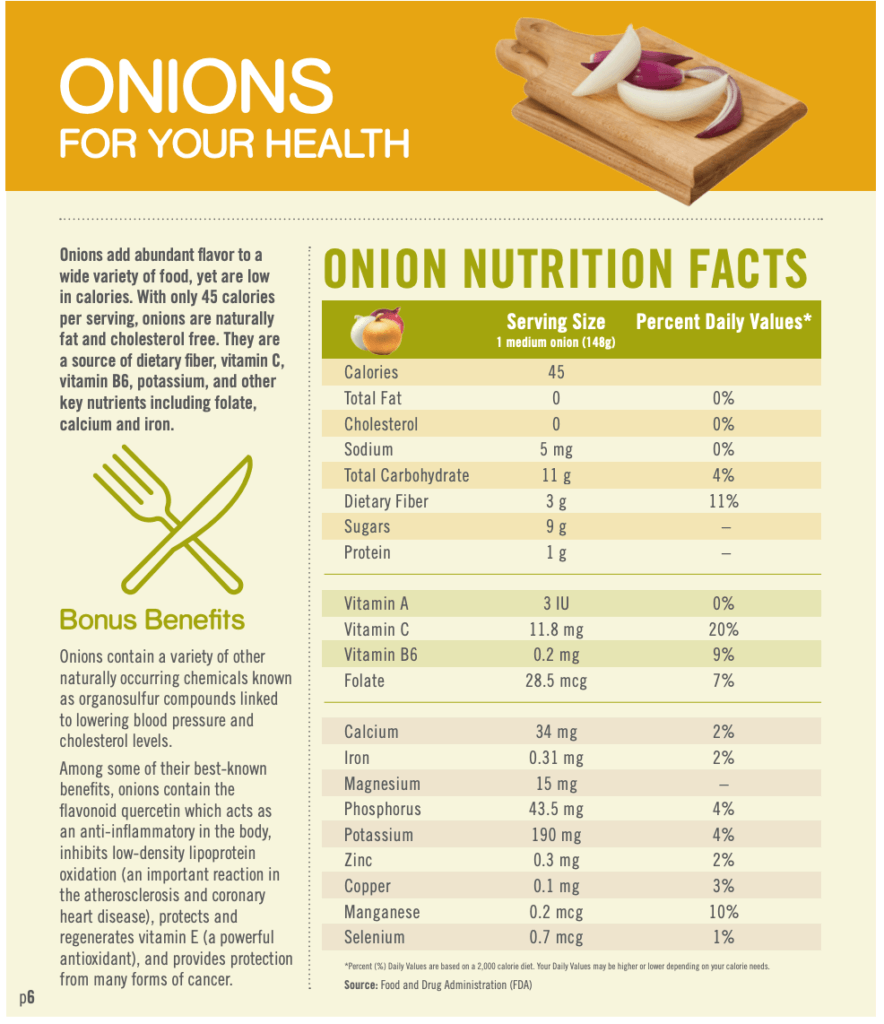Onion
The onion (Allium cepa L., from Latin cepa "onion"), also known as the bulb onion or common onion, is a vegetable that is the most widely cultivated species of the genus Allium. Its close relatives include the garlic, scallion, shallot, leek, chive, and Chinese onion.
The onion, also known as the bulb onion or common onion, is a vegetable that is the most widely cultivated species of the genus Allium. Its close relatives include the garlic, scallion, shallot, leek, chive, and Chinese onion.
Onions are nutrient-dense, meaning they’re low in calories but high in vitamins and minerals. One medium onion has just 44 calories but delivers a considerable dose of vitamins, minerals and fiber (2Trusted Source). This vegetable is particularly high in vitamin C, a nutrient involved in regulating immune health, collagen production, tissue repair and iron absorption. Vitamin C also acts as a powerful antioxidant in your body, protecting your cells against damage caused by unstable molecules called free radicals (3Trusted Source). Onions are also rich in B vitamins, including folate (B9) and pyridoxine (B6) — which play key roles in metabolism, red blood cell production and nerve function (4Trusted Source). Lastly, they’re a good source of potassium, a mineral in which many people are lacking. In fact, the average potassium intake of Americans is just over half the recommended daily value (DV) of 4,700 mg (5Trusted Source). Normal cellular function, fluid balance, nerve transmission, kidney function and muscle contraction all require potassium (6Trusted Source).
Onions contain antioxidants and compounds that fight inflammation, decrease triglycerides and reduce cholesterol levels — all of which may lower heart disease risk. Their potent anti-inflammatory properties may also help reduce high blood pressure and protect against blood clots. Quercetin is a flavonoid antioxidant that’s highly concentrated in onions. Since it’s a potent anti-inflammatory, it may help decrease heart disease risk factors, such as high blood pressure. A study in 70 overweight people with high blood pressure found that a dose of 162 mg per day of quercetin-rich onion extract significantly reduced systolic blood pressure by 3–6 mmHg compared to a placebo (7Trusted Source). Onions have also been shown to decrease cholesterol levels. A study in 54 women with polycystic ovarian syndrome (PCOS) found that consuming large amounts of raw red onions (40–50 grams/day if overweight and 50–60 grams/day if obese) for eight weeks reduced total and “bad” LDL cholesterol compared to a control group (8Trusted Source). Additionally, evidence from animal studies supports that onion consumption may reduce risk factors for heart disease, including inflammation, high triglyceride levels and blood clot formation


